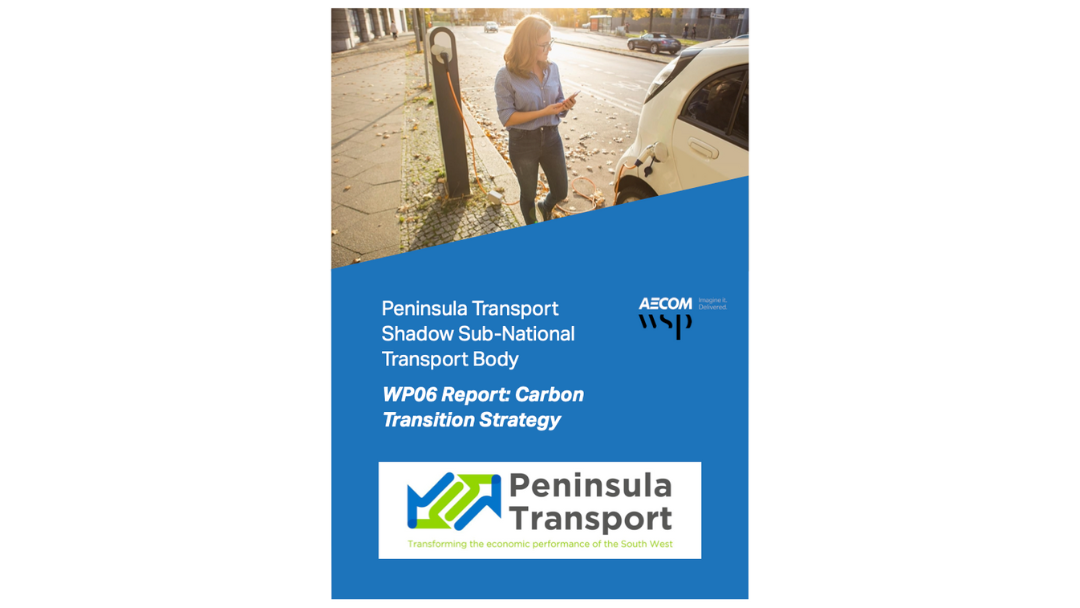A new Carbon Transition Strategy published by Peninsula Transport, Sub-national Transport Body (STB) for Cornwall, Devon, Plymouth, Somerset and Torbay, reveals the scale of the decarbonisation challenge for the region and how it can be addressed. The work aligns with the Government’s aim to turbocharge transport decarbonisation including the recently announced measures to increase use of electric vehicles.
Baseline transport emissions of over 4,400 ktCO2e per annum show the challenge of achieving net zero in the peninsula. Modelling indicates that transport emissions in the peninsula could still be around 3,300 ktCO2e per annum in 2050 if current policy remains the only driver of decarbonisation. Although future technologies may be able to mitigate or offset some of the transport shortfall, action must be taken now to help accelerate transport decarbonisation in the region.
In total, 12 actions were shortlisted, encompassing a range of approaches to accelerate reducing carbon emissions from transport across the peninsula, from reducing demand, changing the method of transport, using alternative fuels and encouraging ‘active’ travel such as cycling and walking.
The three priority actions for Peninsula Transport include:
- Public transport prioritisation: leading the delivery of regional initiatives such as better ticketing, to make public transport a better choice (to cars).
- Creating the electric network of the future: developing a plan to support a well-planned network of charging infrastructure, that fulfils the needs of residents and businesses.
- Delivering a zero-emissions bus fleet: bringing together each local authority’s plan to decarbonise the bus fleet, creating an implementation plan for the peninsula to help accelerate the required infrastructure.
The strategy used modelling to forecast future transport emissions in the peninsula to help assess the effectiveness of different interventions. Four future transport scenarios were developed with stakeholders, ranging from a ‘low ambition’ approach, which used the current policy as a baseline alongside limited other measures, to a ‘maximum ambition’ approach which combined significant behavioural and technological changes for travel in the peninsula.
Councillor Andrea Davis, Peninsula Transport Chairman said: “In the face of the climate emergency, action must be taken at all levels to reduce carbon emissions. We need to ensure that our approaches work with the demands of our peninsula’s unique geographical constraints. We need to be able to remove the barriers to public transport to make it a more viable option rather than taking our cars. We will ensure that the infrastructure is in place to support low carbon travel options, from riding our bikes to charging our electric vehicles.
“The Carbon Transition Strategy sets the foundation of what we need to do at a regional level to help accelerate work to achieve our carbon ambitions. Partnership working is key. The three priority actions for Peninsula Transport will complement and build on actions from our local authorities, operators and partners to help meet the challenge of decarbonising our transport system and at the same time ensuring widespread connectivity for residents, businesses and visitors across the region.”
Greater emphasis will be placed on collaborative work to bring forward pilot projects. The other six actions will be developed as part of the full Peninsula Transport Strategy.
The Carbon Transition Strategy is available on our Carbon Strategy page.

